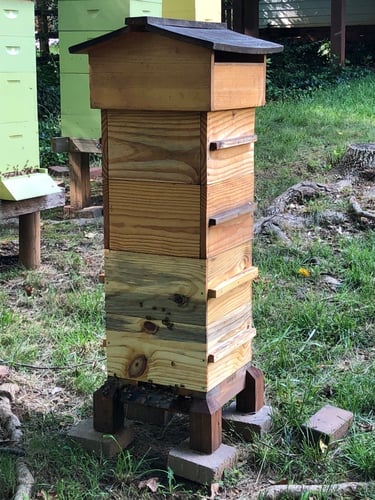Local Beekeeping
North Carolina's rolling hills, coastal plains, and Appalachian foothills make it a beekeeper's paradise—a state where buzzing hives thrive amid wildflowers, pine forests, and blooming orchards. Local beekeeping here isn't just a hobby; it's a vital practice that sustains ecosystems, bolsters agriculture, and delivers the golden goodness of raw honey straight from the hive. As a Pineville beekeeper, embracing these local rhythms means harvesting honey that tastes like our unique terroir: a blend of sourwood nectar from the mountains, tulip poplar sweetness from the Piedmont, and wild berry hints from the Carolina countryside.


Local Beekeeping in North Carolina
Why Go Local? The Taste of Home
No hive is without hurdles: Pests like varroa mites and small hive beetles thrive in our humid climate, while urbanization and pesticides pose threats—NC lost 40% of colonies to CCD in 2023, per surveys. That's why local beekeepers prioritize integrated pest management (IPM): organic treatments like oxalic acid drips, drone brood removal, and planting bee-friendly natives. In Pineville, we focus on chemical-free apiaries near community gardens, ensuring our raw honey is as pure as the Carolina air.
Regulations keep it ethical: All NC beekeepers must register with the NC Department of Agriculture (free, online), follow food safety for sales, and label products accurately—no "pure honey" claims without verification.
Why North Carolina Shines for Beekeepers
Our state's diverse climate—mild winters, hot summers, and four distinct seasons—creates ideal foraging conditions for honeybees (Apis mellifera). With over 4,000 registered beekeepers (as of 2024 NCDA&CS data), NC ranks among the top 10 U.S. honey producers, yielding around 5-6 million pounds annually. Bees here pollinate $1.5 billion in crops yearly, from blueberries in the east to apples in the west, while local hives ensure pesticide-free, unprocessed honey that retains its full nutritional punch: enzymes, pollen, and antioxidants.
Challenges and Sustainable Practices
Choosing NC-sourced raw honey means supporting pollinators, reducing your carbon footprint (no shipping from overseas), and savoring flavors tuned to our soils—subtler and more complex than mass-produced stuff. It's allergy-friendly too, with trace local pollens building tolerance.
At Wimmer Honey Bees, we're proud stewards of this tradition. Swing by our flea market stall to chat hives or grab a jar—your purchase helps keep NC buzzing! For more on starting your own apiary, check NC State Extension's free resources at bees.ces.ncsu.edu. What's your favorite way to enjoy raw honey?
